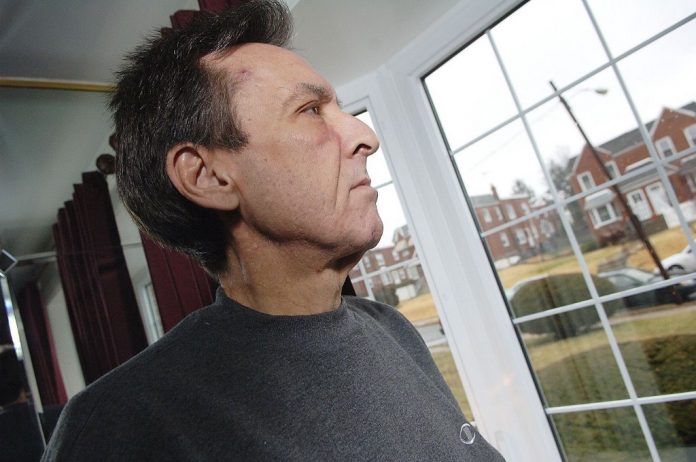Mike Garvey’s medical troubles started in 1999, when a life-threatening auto-immune disease landed him in Nazareth Hospital for a three-month stay.
The disease exposed his nerves and greatly affected his hands, legs and feet, and he had to give up his job as an optician.
Five years later, in 2004, he traveled to the University of Miami’s Jackson Memorial Hospital for a rare and risky five-organ transplant. Dr. Andreas Tzakis was the lead surgeon during the 24-hour procedure, replacing the liver, spleen, pancreas, small intestine and a portion of the stomach.
Two weeks later, while recuperating, Garvey developed sepsis, a potentially deadly medical condition known in layman’s terms as “blood poisoning.”
Following a lengthy recovery, Garvey enjoyed about five years of relatively good health. He was a lunch parent at St. Albert the Great Elementary School and drove his son Michael to school and sports practices.
However, by the Christmas season of 2010, Garvey was suffering headaches and other ailments. A few months later, he started undergoing kidney dialysis treatments and was told he’d need a transplant.
Looking back, the 54-year-old Garvey said the sepsis damaged his kidneys, putting him on dialysis for two months. The deterioration has continued.
“In the last eight years, the medication I have taken has taken a toll on the kidneys,” he said.
Dr. Tzakis has recommended that the transplant take place at Jackson Memorial Hospital, and Garvey is on a waiting list in Florida for a cadaver kidney.
“Being on the kidney transplant list can be an excruciatingly long wait,” he said.
When Garvey needed the five-organ transplant, the wait was nine months long. The organs came from a cadaver.
Garvey, who lives on Glenn Street in Bustleton, believes he might have to wait from 2½ to 5 years for a cadaver kidney.
Of course, the transplant could take place a lot sooner if a live donor would agree to the procedure. There would also be a lesser risk of rejection.
“I want to get it over and done with as soon as possible,” Garvey said.
Garvey has O positive blood. To be a compatible donor, an individual must be 18 to 65 years old, have O positive or O negative blood and not be on blood pressure medication.
Cassie Garvey, Mike’s wife, has high blood pressure. Michael Garvey, a 14-year-old freshman at Father Judge High School, is too young.
“A live donor would be much better than having a cadaver,” Cassie Garvey said.
Any live donor who would step forward would have his or her blood drawn, with the sample sent to Jackson Memorial Hospital for analysis. Expenses would be paid, and the surgery is considered risk free. Individuals can live with one kidney.
Recipients like Garvey usually can live with the donated kidney the rest of their lives. The transplant would eliminate the need for dialysis, lessen the risk for heart disease and high blood pressure and ease the negative impact on other organs.
“It would be life saving, and it would add to my lifespan,” Garvey said. “I want to be around as long as I can. I still have a son to raise.”
As Garvey waits, he gets his blood drawn monthly, as he’s done for the last eight years. Since last March, he’s gone to dialysis treatments Mondays, Wednesdays and Fridays for 3½-hour sessions each time. He is also on a variety of medicines.
“Our cabinet is loaded with medication,” he said.
The dialysis is necessary and effective, but it does take a toll on the other organs and contributes to high blood pressure. Garvey also deals with fatigue.
“I’m surviving,” he said. “But the whole process of dialysis is exhausting. It takes years off your life. It’s taxing on all the other organs in your system.”
Garvey is thankful for his family’s help during the long ordeals. Michael was just 2½ when his dad first got sick, and Cassie stayed awake during the 24-hour transplant.
Both of them are looking forward to watching him enjoy a better quality of life with a new kidney. He’s already survived some tough challenges.
“He’s a miracle,” his wife said. ••
Potential donors can call the University of Miami Jackson Memorial Hospital Transplant Institute toll-free at 877–999–9298, or contact [email protected]
To make a donation to cover the costs related to the transplant surgery, send checks to Mike Garvey Kidney Fund, 144 N. Sylvania Ave., Jenkintown, PA 19046.
To reach Mike Garvey, e-mail [email protected]





